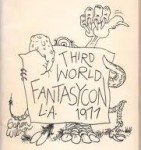A good question raised about going to conventions, workshops, and seminars asked how in the world does someone budget for these things. They can get unbelievably expensive. And it’s not just the event itself; there’s transportation there and back, food while you’re gone, and lodging. I don’t have all the answers, but here are some ways that have helped me.
First off, no matter how well you budget, there’s going to be a price tag. I consider the cost of cons and workshops to be my tuition or continuing education so I fit it into the budget. Maybe I’m only justifying using up my family’s money, but really, if I went back to school to get a masters or Ph.D. I’d spend even more without a much better guarantee I’d garner a return. Still, there are a few things you can do to cut costs.
For transportation, sign up with a rewards program to eventually, I hope, help with the cost of airfare. I wish I’d given myself this advice two years ago. I just barely signed up and it’s going to take a while to earn any rewards. Or…carpool. You might be surprised at how many people are driving from or through your area to attend an interesting convention.
Share the room. By getting a roommate you’ve cut one of the major expenses in half. I’m sharing for FantasyCon with a fellow writer met at Superstars Seminar. We’re not coming and going at exactly the same time, but it’s still costing us less than it would otherwise.
Booking a room close to the event, but not as expensive as the sponsoring hotel can help with lodging costs as well. Two years ago I stayed with a sister-in-law who lived around the corner from where World FantasyCon was taking place. I also stayed with family in order to attend Conduit last year. Usually it’s more fun and a good idea to stay in the main hotel, but sometimes it’s just not worth the cost. I couldn’t have attended otherwise.
If you do stay in a different hotel, get one with a refrigerator and a microwave. I’ve been known to do what I call “camp con” where I eat the offered breakfast at the cheap hotel, nuke up lunch or dinner in the microwave, then go out with fellow attendees for the other meal. This worked great at one of Dave Farland’s workshops because he always has them in reasonably priced hotels which have refrigerators and microwaves.
Now you might say, but I don’t know people I can do this with. You have to make it happen. Usually, there’s a way to connect with other attendees before the event. Either the person or group hosting will have a list of attendees, you can contact people through facebook, or you can request something be set up so attendees can communicate with each other. By staying active in a local writing group you can often find others who want to attend the same event. As your networking grows, your own fb page may be enough to get the word out. Just post something like, “I’m going to WorldFantasy Con in October. Does anyone know someone who would be willing to carpool?”
Of course, make sure you get to know someone before you do something like this. And make sure you feel safe. There are crazies out there; different crazy than just sf/f nuts. You have to always be careful, but as you get out you’ll get to know people. Go to those writing groups in your area, go to smaller cons in your area, and find out who’s going where. The more we network, the more we can help each other. But that’s a whole other post, and I think I’ve said more than enough this week.
Anyone with other ideas or experiences? I’d love to hear more.

